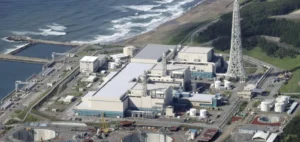EDF, the French electricity group, has announced a partnership with Federacciai, the Italian steel industry federation, as well as with Edison, Ansaldo Energia and Ansaldo Nucleare.
This agreement aims to promote the use of nuclear energy in the Italian steel industry, with a view to significantly reducing greenhouse gas emissions.
Italy abandoned nuclear power after a referendum in 1987, but this agreement could mark a significant turning point for the return of nuclear power to the country.
The agreement partners are committed to exploring opportunities for co-investment in new nuclear power, including the construction of small modular reactors (SMRs) over the next decade.
EDF, as the main player in the project, will contribute its SMR technology, while Edison and Ansaldo Energia will provide their engineering expertise and industrial capabilities.
The flagship project, Nuward, is currently being developed by EDF, with adjustments planned to optimize its design.
This project could also diversify the energy mix of the steel industry, which needs to adapt and embark on an energy transition to remain competitive.
Moreover, for EDF, this is a new strategic business collaboration, just like the nuclear collaboration with Energoatom.
The ambitions of the Nuward project
The agreement includes a commitment to evaluate the possibilities of nuclear power supply in the medium and long term.
The use of the existing interconnection between Italy and France is envisaged to supply decarbonized energy, thus contributing to the decarbonization of steel production in Italy.
Modular reactors like the Nuward represent a key technological advance for achieving these decarbonization objectives.
Antonio Gozzi, President of Federacciai, emphasizes that this cooperation could enable Italy to become the first nation in the world to produce fully decarbonized steel.
This agreement is part of a wider trend in Europe, where several countries are rediscovering nuclear power as a viable solution for reducing dependence on fossil fuels and meeting climate targets.
Transformation potential for the steel industry
The implications of this agreement go far beyond the steel industry.
By integrating advanced nuclear technologies, Italy could stimulate innovation and attract foreign investment, thereby contributing to economic growth and job creation.
Reviving the nuclear option could also strengthen Italy’s position in the European energy sector.
Nuclear power, with its low carbon emissions, is increasingly seen as an essential solution for the energy transition.
The Nuward project, with its modular reactors, offers greater flexibility and safety, tailored to today’s decarbonization needs.
The Italian and French partners see this cooperation as an opportunity to strengthen their ties and collaborate on large-scale energy projects.
This agreement between EDF, Federacciai, Edison, Ansaldo Energia and Ansaldo Nucleare marks a crucial step for Italy’s energy future.
By relying on nuclear technology, the country could not only decarbonize its steel industry, but also position itself as a world leader in the energy transition.
This strategic cooperation could pave the way for new international collaborations and strengthen Italy’s position in the global energy sector.





















